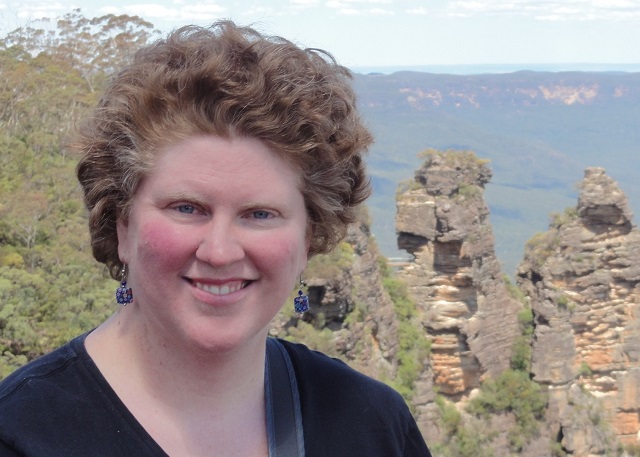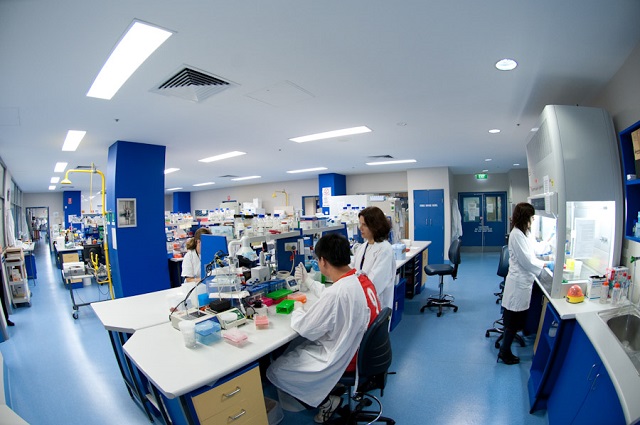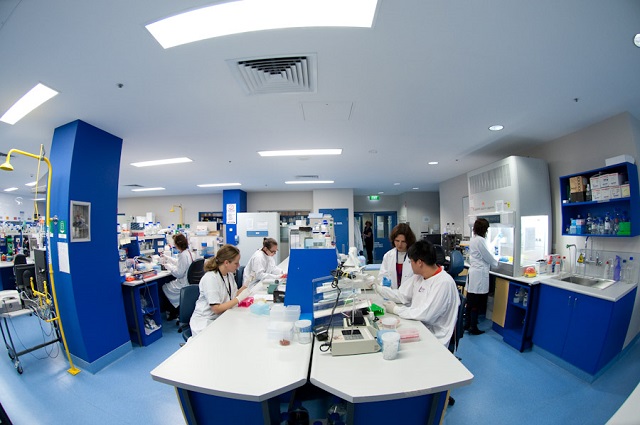The benefits of multidisciplinary collaboration
Meet: Dr Catherine Butler
–
Dr Catherine Butler is a Senior Research Fellow within the Oral Biology Research Group at the Melbourne Dental School. Dr Butler has been researching at the Melbourne Dental School for 18 years.
 Dr Catherine Butler (Melbourne Dental School)
Dr Catherine Butler (Melbourne Dental School)
During this period, her research focus has shifted from elucidation of iron transport and genetic control mechanisms within the bacterium Porphyromonas gingivalis, a causative agent of periodontal disease, to elucidation of the oral microbiome in health and disease. Her current research interests also include the role that oral bacteria play in chronic diseases such as Alzheimer's disease. Dr Butler's research into oral bacteria was recognised by the International Association of Dental Research (Australia and New Zealand) with the Oral Biology Award in 2016.
"Whenever people hear that I work at the Melbourne Dental school, they assume that I am a dentist, but I am actually a microbiologist, and work in a team with other scientists who have expertise in a range of disciplines including biochemistry, immunology, and molecular biology. We all perform research to help understand, treat and prevent oral diseases," said Dr Butler.

Q&A WITH DR CATHERINE BUTLER
Why is your research important?
"My current research uses the technology of next-generation sequencing to identify the oral microbiome of healthy and diseased states. This research is important because it not only shows us how the microbiome differs from health to disease but increases our understanding of what is happening during this transition. We can also use this information to identify biomarkers of health and disease, with the aim of identifying predictors of disease. Being able to predict disease would enable preventative treatment to occur before the onset of disease."
What is working as part of your research group at the Melbourne Dental School like?
"I have really enjoyed working at the Melbourne Dental School and have made many wonderful friendships. Being part of such a multidisciplinary team means that I always have someone I can go to for help if I have a problem, both within and outside my area of expertise. I am always busy, working in the laboratory or my office or supervising research students. I have also had many opportunities to present my work at national and international conferences."
What is the Honours/Masters/PhD experience and the Melbourne Dental School like?
"Undertaking Honours/Masters/PhD within the Melbourne Dental School is a worthwhile undertaking for many reasons. Not only are there scholarships worth $5,000 to support Honours/Masters students, but there is a research grant that all students are encouraged to apply for. This not only gives our students experience in writing a grant proposal with budget, but will provide them with funds to support their research. We aim to have all our students
- contributing their own research article for publication,
- attend local/national conferences (as appropriate),
and PhD students are also expected to attend an international conference during their candidature."
Where are your students now?
"Some of our Honours students have moved on to study Dentistry, while many remained and research and went on to undertake their PhD. Some Honours students chose a different pathway to research, with one working as a diagnostic microbiologist in London and one working as a policy advisor for the Victorian Government. All of our PhD students have gone on to research careers in universities or private industry."
Do you have any advice for Honours/Masters/PhD students at the Melbourne Dental Hospital?
"One of the advantages of undertaking Honours/Masters/PhD at the Melbourne Dental School will be the ready access you have to your supervisors, so make the most of them! Take every opportunity that is available to you, not just from within the School but from within the University too."
Looking for an Honours or Masters Project for 2020?
